“The Circle of Life in the Rhodope Mountains”, a 12-minute documentary by Emmanuel Rondeau, tells the hopeful story of rewilding in the Rhodope Mountains of Bulgaria. At the beginning of November, a well-attended premiere in the town of Kardzhali helped the local rewilding team engage a wide range of stakeholders.
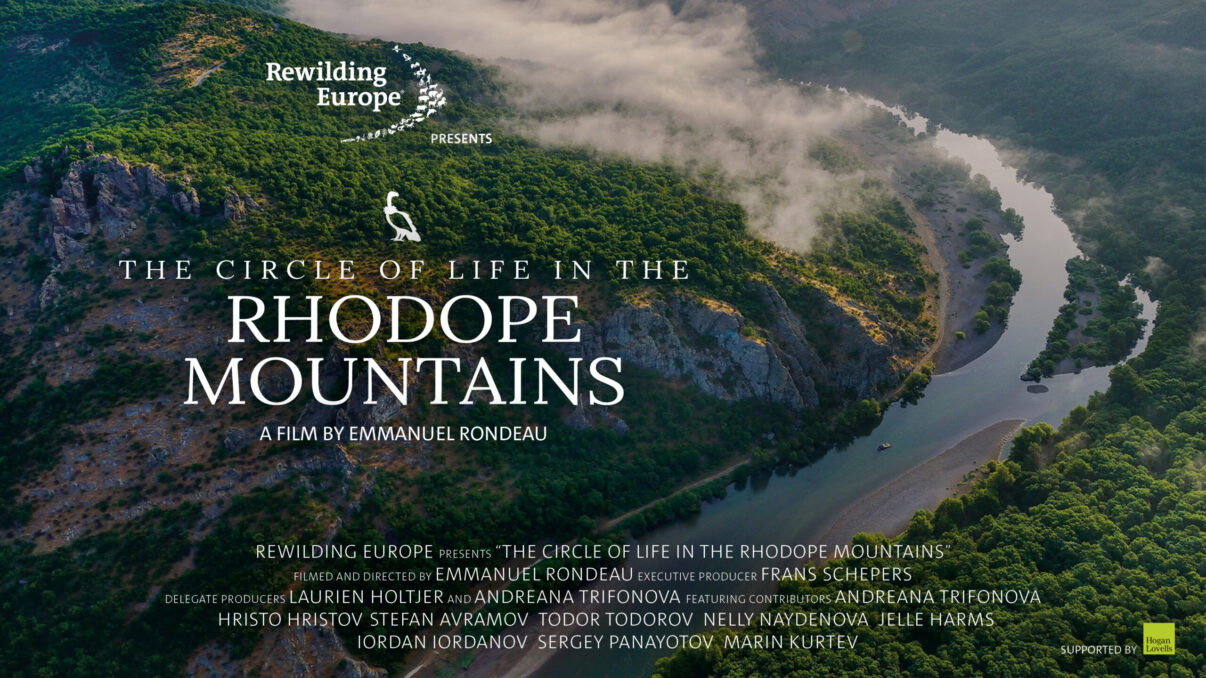
Closing the circle
In collaboration with Rewilding Europe and local partners, the Rewilding Rhodopes team has been working for many years to restore the so-called “circle of life” in the Rhodopes Mountains rewilding landscape in Bulgaria. Rewilding efforts have seen populations of keystone herbivores such as red and fallow deer, European bison and wild horses reintroduced and restocked, with benefits for local populations of carnivores, such as wolves, and scavengers, such as vultures.
Such efforts, and the positive impact they are having on both wild nature and local communities, are captured beautifully in “The Circle of Life in the Rhodope Mountains“, a new 12-minute documentary by award-winning French filmmaker Emmanuel Rondeau. Premiering on November 11 in the Bulgarian town of Kardzhali, which is located in the heart of the Rhodope Mountains rewilding landscape, the film features interviews with representatives of Rewilding Rhodopes and Rewilding Europe, as well as landscape residents.
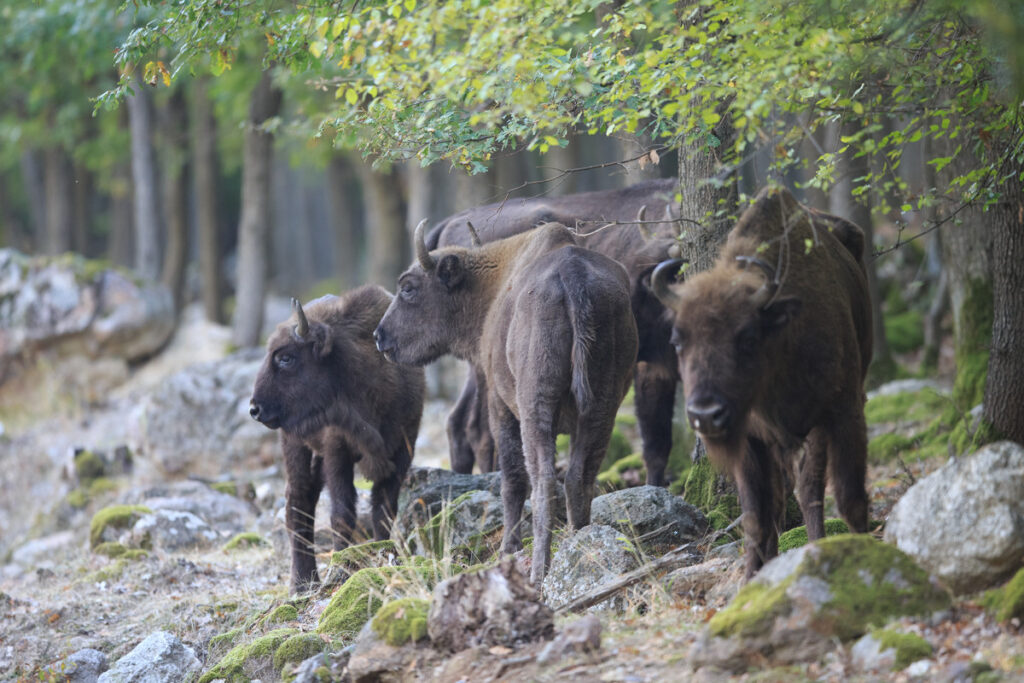
A message of hope
Every day, across the world, the circle of life rotates in infinite complexity. Herbivores, which feed on vegetation, are preyed on by carnivores. Sometimes they simply die of old age or disease. Their carcasses are consumed by scavengers, such as vultures, foxes and an array of insects, which are, in turn, part of intricate local food webs. They are also broken down by microorganisms and fungi, with nutrients returned to the soil.
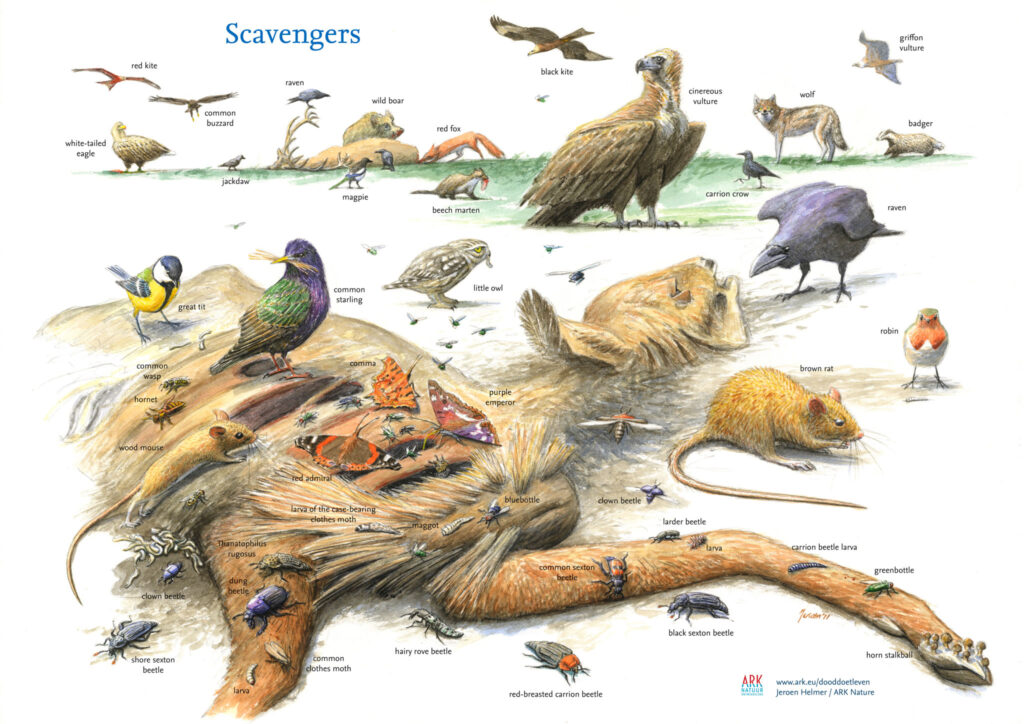
But in most parts of Europe, as in the Rhodope Mountains, the impact of man on the natural landscape means this circle is broken or degraded, negatively impacting biodiversity and the benefits that nature delivers to people. By restoring the circle of life and supporting wildlife comeback, rewilding is breathing new life into local communities by enabling the development of a thriving nature-based economy, with new jobs and income allowing people to stay in and return to the area.
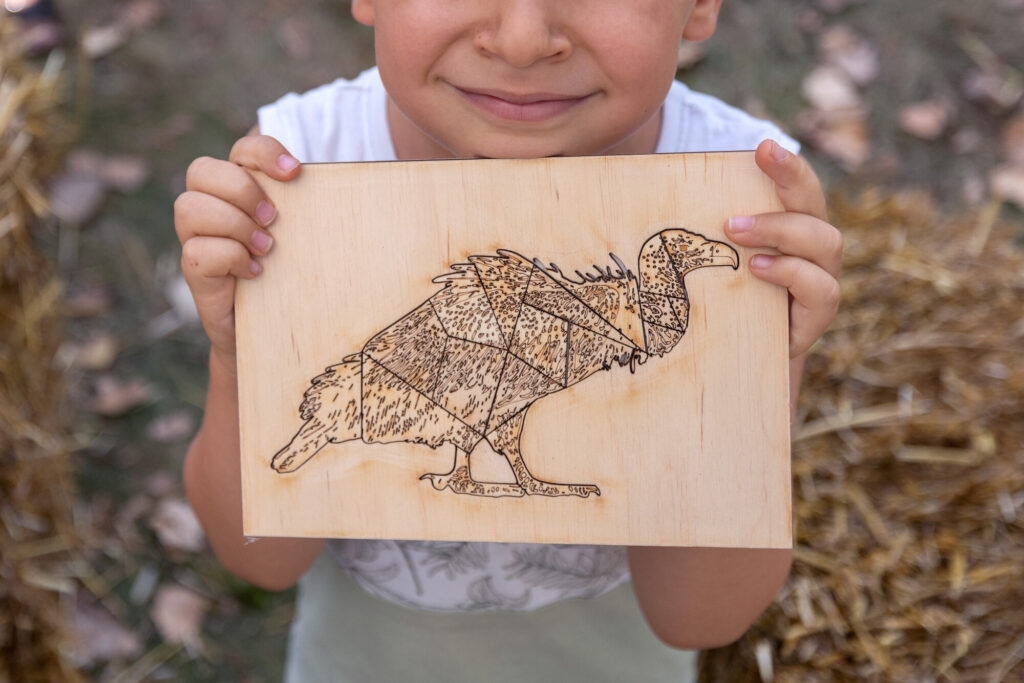
In his new film, Emmanuel Rondeau traces the history of Madzharovo – a town in the Rhodope Mountains rewilding landscape – portraying its evolution from a small mining settlement to an attractive tourist centre that today attracts nature lovers from around the world. The documentary features an interview with Todor Todorov, a member of the Rewilding Rhodopes team, who has returned to the area to live and work, illustrating how rewilding can offer socio-economic benefits, as well as ecological ones.
“Through our efforts, we want to provide as many nature-based economic opportunities as possible for local people,” says Rewilding Rhodopes Team leader Andreana Trifonova. “By restoring the circle of life, rewilding is providing hope for people, as well as nature. And if rewilding can do this here, it can do it everywhere nature is degraded – we just have to scale it up.”
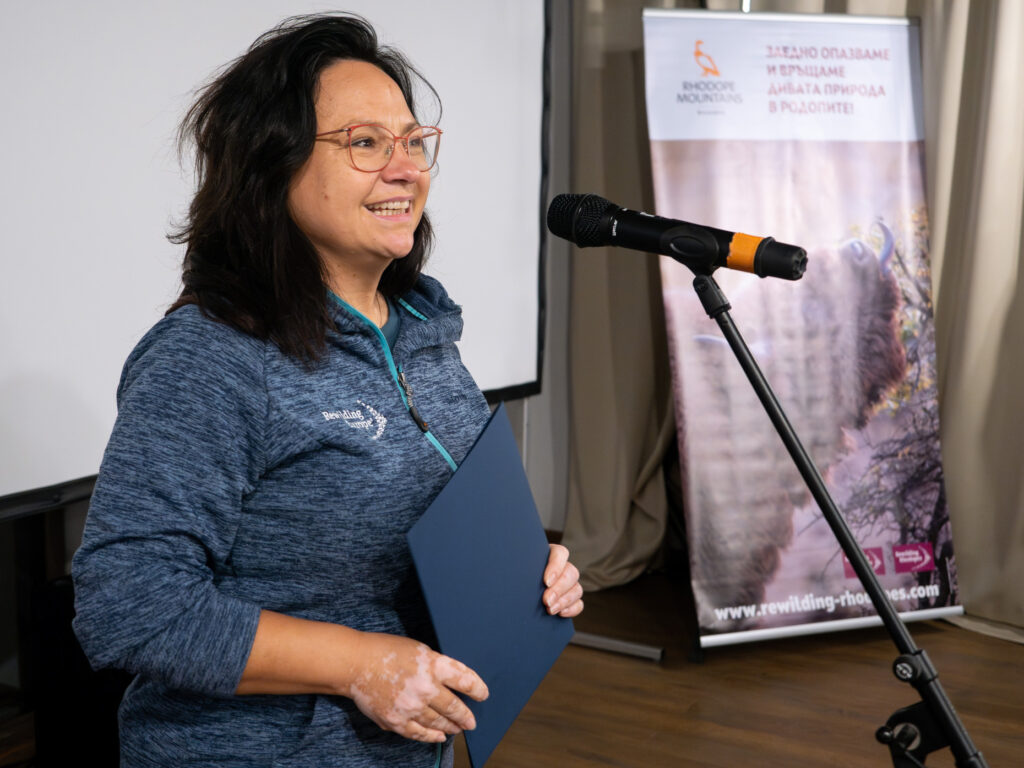
A rewilding showcase
As an inspirational and informative rewilding showcase, the new documentary will help to build engagement at a local, national and international level, increasing outreach, raising awareness of rewilding and its many benefits, and enabling the Rewilding Rhodopes team to establish and strengthen productive partnerships.
As in all of Rewilding Europe’s operational landscapes, the support of local people and partners is vital to the work of the Rewilding Rhodopes team. This is why Kardzhali’s regional history museum was chosen to host the first premiere of the new documentary, which was attended by representatives of the local municipality, key partner organisations, including the Bulgarian Society for the Protection of Birds (BSPS), representatives of educational institutions and hunting, fishing and forestry organisations, and many other rewilding friends and supporters and members of the general public.
The museum was transformed into a movie theatre for the premiere, which was officially launched by Rewilding Rhodopes Team leader Andreana Trifonova, who welcomed all attendees and presented the team’s work and achievements. The screening was followed by a cocktail party, where the team had the opportunity to personally meet and talk with guests.
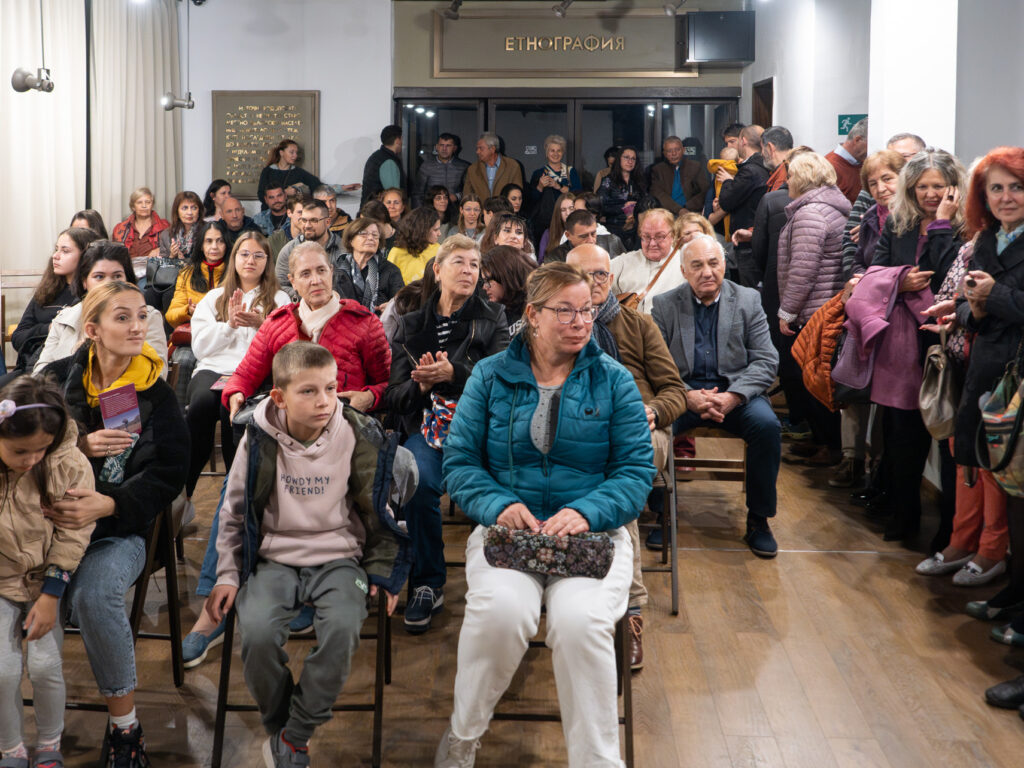
Boosting outreach
Following its premiere in Kardzhali, “The Circle of Life in the Rhodope Mountains” will premiere in the Bulgarian capital Sofia on December 5, as part of the annual “Adventure Days” outdoor festival. It will then premiere online on December 14 on Rewilding Europe’s YouTube channel and Facebook pages of Rewilding Rhodopes and Rewilding Europe.
The new documentary is the second instalment in an exciting series of short films showcasing the work of Rewilding Europe. These are all being produced by Emmanuel, with the support of law firm Hogan Lovells. By demonstrating the beneficial impact of the initiative’s rewilding efforts, they will boost outreach and help to scale up nature recovery across Europe.
Want to know more?
- Rewilding in the Rhodope Mountains
- Watch the documentary here
- Rewilding Rhodopes on Facebook / YouTube
